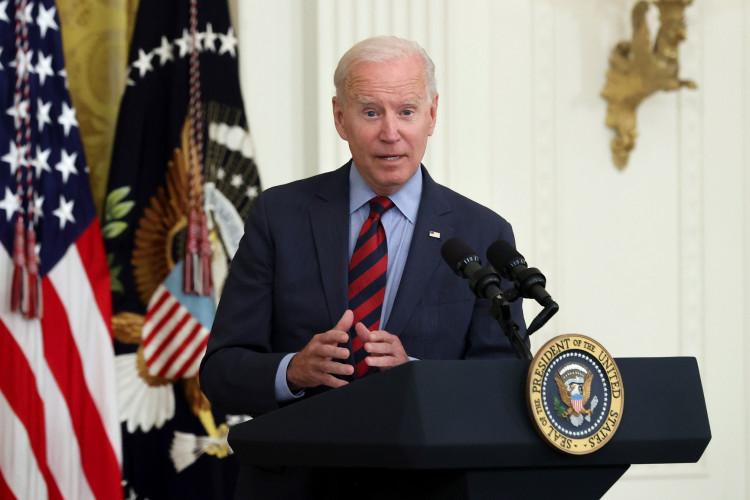On Thursday, US President Joe Biden unveiled his proposed $6.8 trillion budget, which tackles various issues such as the deficit, tax increases for the wealthy, military spending, and competitiveness with China.
Biden presented his plan in a speech in Philadelphia, emphasizing that his budget aims to reduce the burden on Americans. The Democratic president argued that the proposals put forward by Republican lawmakers would jeopardize the country's social safety net programs and primarily benefit the rich.
While the GOP has majority control of the House, Biden's plan serves as a starting bid for lawmakers in Congress to discuss raising the debt limit and creating a policy blueprint for Biden's anticipated re-election campaign.
The Deficit
The Republican Party has been firm that they will only allow the government to borrow additional funds to pay its bills if the Democratic Party has an accompanying plan to reduce the federal deficit, as per the New York Times. Biden's plan aims to increase taxes, enforce the tax code, and close tax loopholes to reduce the country's reliance on borrowed funds.
The president is also pushing to negotiate more aggressively on prescription drug prices. White House officials have roughly estimated that these changes, along with several other tweaks to the drug negotiation provision, would result in the US government saving $200 billion over ten years and reduce federal budget deficits by approximately $3 trillion over the next decade.
Social Security and Medicare
Biden's proposed budget seeks to protect Social Security and Medicare, unlike the GOP's spending cut proposals. House Speaker Kevin McCarthy noted that House Republicans will not make any changes to either program, leaving the party with few options to eliminate the country's deficit, according to USA Today.
The two programs are significant drivers of the national debt, which is expected to rise by about $19 trillion over the next ten years. Biden's budget proposal aims to make Medicare solvent beyond 2050, intending to raise the Medicare tax rate for high-income earners from 3.8% to 5%.
Expanding Affordable Health Care Access
Biden's proposed budget invests $150 billion over the next decade to improve and expand Medicaid home and community-based services, including personal care services, allowing seniors and individuals with disabilities to remain in their homes and communities.
The budget also plans to double the size and extend the reach of the Health Center Program, as community health centers can serve one in three people living in poverty and one in five rural residents, according to the White House.
While Biden's budget proposal will face challenges in the GOP-controlled House, it is a starting point for negotiations on crucial issues, including reducing the deficit, strengthening social safety net programs, and increasing access to affordable health care.






